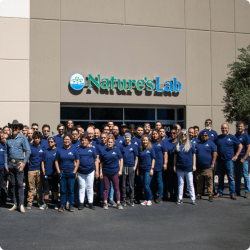

What we take in can help keep our brain function in tip top shape. This article takes a look into how nootropic supplements including resveratrol, fish oil and l-theanine support brain health.*
What are Nootropics
Nootropic supplements are supplements that cross the blood-brain barrier and have benefits related to the brain’s performance and factors associated with aging.* The brain is such an important organ that few substances make it pass the blood-brain barrier. This barrier is a layer of endothelial cells that acts as a gatekeeper for the delicate realm of the brain and central nervous system. The blood-brain barrier guards against bacteria, toxins and other harmful elements, but lets in nutrients needed for central nervous system function.
L-Theanine Benefits for Brain Health*

L-theanine is an amino acid found in tea leaves and some species of mushrooms. It’s the reason drinking a cup of tea gives you a calm feeling. L-theanine can increase alpha brain waves, the brain waves associated with feeling calm. It has a similar structure to our own neurotransmitters and promotes increased levels of Brain-Derived Neurotrophic Factor (BDNF) and Nerve Growth Factor (NGF).* These brain growth factors are what allow our brains to grow more connections and neurons. Neuroplasticity, or the ability of our brain to change structure, is highest when we are young. BDNF and other growth factors encourage neuroplasticity, keeping our brains sharp and agile.
L-Theanine's Role in Brain Function

L-theanine may enhance our capacity of memory according to recent research.* An interesting study on individuals aged 50-69 showed that one single dose of L-theanine elicited improvement in memory and attention.* Other studies have shown how l-theanine combined with caffeine supports greater concentration and focus. L-theanine affects not only BDNF but supports increased levels of calming neurotransmitters like dopamine, GABA and serotonin.* L-theanine is sometimes referred to as “nature’s chill pill” due to its relaxation-inducing effects and is helpful for those with occasional sleeping issues.* This amino acid is featured in two different sleep products from Nature’s Lab; Gentle Sleep Aid and Sleep Support, and also on its own as a 200 mg capsule of l-theanine.
Resveratrol Promotes Autophagy*

A key part of the healthy Mediterranean diet is red wine, mainly due to its high resveratrol content. Resveratrol is not only found in wine but cocoa and some berries, including blueberries, cranberries and raspberries. Because of how wine is produced, concentrated and fermented, it is the highest food source of resveratrol. Resveratrol’s claim to fame is its influence on cellular repair.* Resveratrol triggers autophagy. Auto-what? Autophagy is the body’s cellular housekeeping process in which your body breaks down and removes damaged components of cells. The term autophagy is taken from Latin words meaning “self-eating.” Autophagy is one of the reasons many health experts recommend intermittent fasting– it also stimulates autophagy. Resveratrol may impart some of the benefits of intermittent fasting without the fasting part, however, resveratrol would have no effect on weight loss.*
Resveratrol's Effects on Cellular Maintenance and Repair*

Resveratrol also supports health by maintaining parts of our cells, specifically DNA.* At the tip of DNA chromosomes you’ll find a cellular structure called telomeres. Scientists have found that the length of telomeres are a good indicator of aging. We have very long telomeres in our youth that gradually get shorter with age. Shortened telomeres are associated with not only cardiovascular health concerns but also brain health issues related to memory. Resveratrol shows evidence of maintaining and possibly even increasing the length of telomeres.* Numerous studies on this exciting antioxidant have shown that it encourages neuroplasticity by enhancing BDNF levels in the brain.* Since resveratrol is a polyphenol antioxidant it also soaks up unstable free radicals that damage cells.* This nootropic ingredient is available in Nature's Lab Resveratrol Ultra which also includes red wine extract and grape seed extract for added antioxidant and anti-inflammatory benefit.*
Fish Oil Benefits on Cognitive Health*

Fish oil is one of the highest food sources of omega-3 fatty acids. Omega-3 fatty acids are a type of fat that we can’t create within our bodies, yet is needed for various body processes. The brain utilizes a high amount of fatty acids. In fact, one-third of the brain is made up of omega-3 fatty acids. To find out more about healthy fats and why we need them take a look at the article “All About Healthy Fats.”
Recommended Dosage of DHA and EPA

The omega-3 fatty acids in fish oil may lessen the risk of age related cognitive decline.* Omega-3 contains specific types of polyunsaturated fatty acids called DHA (docosahexaenoic acid) and EPA (eicosapentaenoic acid). Research shows DHA intake is increasingly critical as we age as it contributes to maintaining memory and other cognitive functions.* One trial tested whether supplementing with DHA in individuals over the age of 55 would have any impact on cognitive health. The results showed that 6 months of supplementation improved learning and certain facets of memory in those that took DHA in comparison to those that did not. For best results, take a fish oil supplement with 500 mg of DHA and 500 mg of EPA. Two capsules of Nature’s Lab Triple Strength Omega-3 Fish Oil contains 650 mg of DHA and 650 mg of EPA. Our Brain and Memory Collection showcases additional supplements besides resveratrol, l-theanine and fish oil that support brain aging such as magnesium, mushroom and 5-HTP. Read up on supplements that focus on mood and mental health here.
Shop our collection of Brain Boosters.
Tomen, D. (2021, December 27). L-Theanine. Nootropics Expert. Retrieved July 20, 2022, from https://nootropicsexpert.com/l-theanine/
Baba, Y., Inagaki, S., Nakagawa, S., Kaneko, T., Kobayashi, M., Takihara, T. (2021, April). Effects of L-theanine on cognitive function in middle-aged and older subjects: A randomized placebo-controlled study. Journal of medicinal food. Retrieved July 20, 2022, from https://www.ncbi.nlm.nih.gov/pmc/articles/PMC8080935/
Yurko-Mauro, K., McCarthy, D., Rom, D., Nelson, E. B., Ryan, A. S., Blackwell, A., Salem, N., Stedman, M. (2010, November). Beneficial effects of docosahexaenoic acid on cognition in age-related cognitive decline. Alzheimer's & dementia : the journal of the Alzheimer's Association. Retrieved July 20, 2022, from https://pubmed.ncbi.nlm.nih.gov/20434961/
Conger, K. (2015, January 22). Telomere extension turns back aging clock in cultured human cells, study finds. Stanford Medicine . Retrieved July 20, 2022, from https://med.stanford.edu/news/all-news/2015/01/telomere-extension-turns-back-aging-clock-in-cultured-cells







